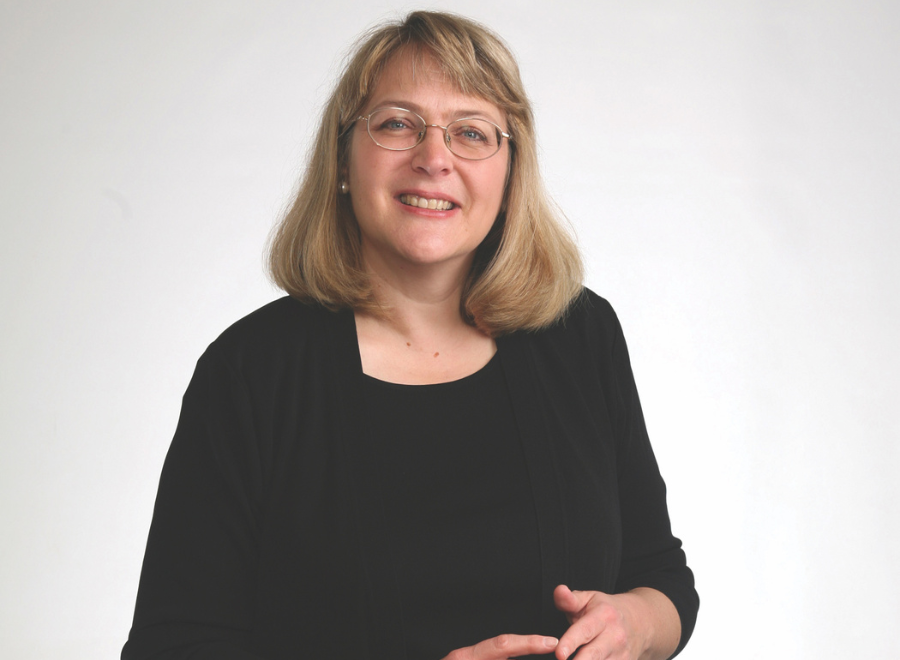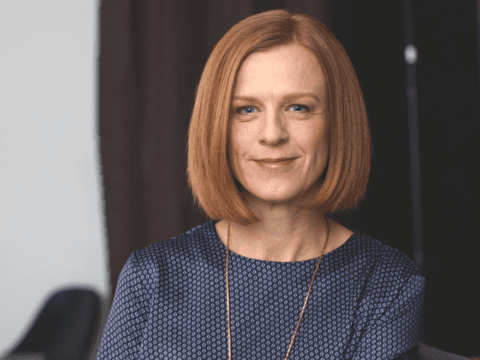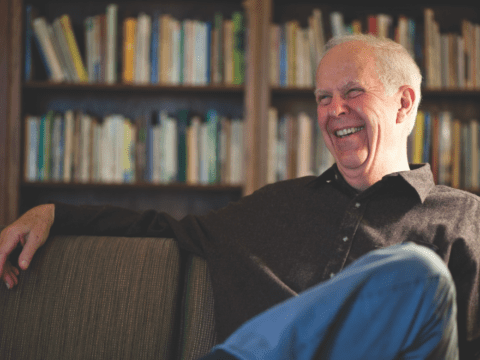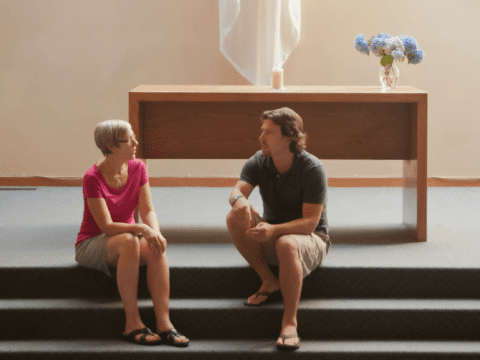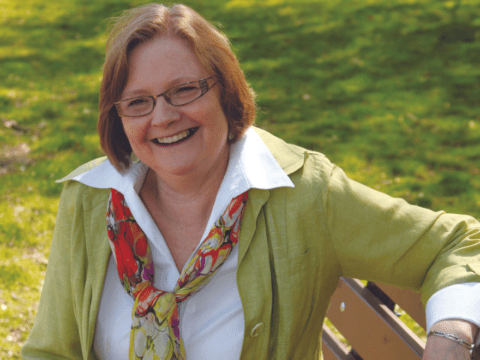Sociologist, author and theologian Diana Butler Bass explains to Pieta Woolley why North America’s largest religious group — mainline Protestantism — is struggling. Don’t worry. She has a plan.
Pieta Woolley: At your Vancouver conference last June, you said grandparents often grieve when their grandchildren are not baptized. What do you tell them?
Diana Butler Bass: That’s a really sad thing in North American Christianity right now, and I bump into it a lot. When adult children don’t baptize their own children, and there’s that break in the line of family faith, grandparents feel like it’s their fault. I always say, “It’s not your fault. The world you grew up in has changed very radically. You didn’t change it. It changed around you. And your children responded to that change in ways that don’t make sense to you.” There needs to be a lot of trust on the part of grandparents. I tell them to let people go on the journeys they need to go on.
PW: No one likes to think that churches have screwed up. Have they?
DBB: Well, I hope that people don’t feel bad hearing me say this. Christianity is in a bad way in North America. All of the polling data in North America indicate declines in membership, declines in adherence, declines in the way in which people participate in their congregations. It’s fair to say that conventional patterns of 20th-century Christianity have ended. I think it means that churches have disappointed; they’ve not answered the questions that people are asking.
PW: What are those questions?
DBB: Sociologists ask questions about belief, behaviour and belonging. People are not interested anymore in belief as ideas about God, or behaviours as lists of dos and don’ts, or belonging as simply membership. So what I try to do is say, well, if they’re not interested in those answers anymore, how might people be asking those same sets of questions today? Questions about belief and belonging and behaviour don’t go away. But I think people are longing for them to be addressed differently.
People are not interested in what to believe; they’re interested in
how to believe. They just don’t know how they can get around their intellectual or personal obstacles. How do you negotiate belief if you don’t think the Bible has any credibility in terms of history or science? In terms of behaviour, people are asking very basic questions about what to do with their lives. Finally, the question about belonging is no longer about joining an organization, but it’s about relationship. Who do I want to live my life next to? What community will help me form who I am?
If we do answer these questions — and there are a lot of religious groups, seekers and Christian thought leaders who are engaging these kinds of questions — we will create a much more vital form of Christian spiritual life.
PW: Are theology schools graduating people who are creative enough to take this stuff on?
DBB: There are a lot of interesting and fabulous individuals teaching in the schools. And there are many curious and spiritually vibrant students. However, the majority of colleges — I feel really terrible saying this — are still essentially training people for the 1970s and 1980s. When it comes to the pastoral theology, cultural analysis and understanding of people right now, I think they’re 20 or 30 years behind. And that’s a problem. It means students are not getting their real questions answered.
PW: Among the 20 percent of people who are non-religious in North America, some really loathe Christianity. Is this a monumental impediment to new congregational growth?
DBB: The looks I get when I’m on an airplane! “What do you do?” “I’m a writer.” “What do you write?” I say, “Non-fiction.” “What kind of non-fiction?” As soon as I say “religion” or “Christianity,” it’s like I have just said that I am a cannibal.
It’s hard to share your faith with someone who already thinks you’re an axe murderer. But if we don’t correct them, I don’t know who will. I don’t have a problem with saying to people, “Hey, I get you. And I hear your story that religion is terrible and so hurtful. But my experience has brought me into a different kind of religious community. And so if you want me to tell you about that, I’m happy to. If you want me to shut up, I’m happy to do that too.”
What do we do about it? I think we just have to receive people’s anxieties. I think we need to really listen.
What is it about having to defend God or Jesus or the church? Honestly, if God can’t take a few people being anxious about whether God exists, or if Christians can’t take the criticism that they’re not acting like Jesus wanted them to act, I think that makes us look like babies. So, take the criticism and move on. Let’s be grown-ups. Christians have to live their lives in ways that counteract that really negative narrative.
PW: You’re a seasoned journalist. What’s lost when newspapers stop paying attention to faith?
DBB: When newspapers give up their religion reporting, there’s a lack of a sensible, reasonable and analytical voice. Once that reason is absent in the public square, religion becomes equated with the most extreme, the most popular or the loudest person, rather than with what is really important. We’ve seen a lot of that over the past five years.
PW: At the Vancouver conference, you criticized churches that act as though they can get out of their mess by doing good works. So what should churches be doing instead?
DBB: I think they should be doing good works. There’s nothing wrong with doing good works, and Lord knows we’re living in a time when the more good works that can be done to help people who are hurting, the better our world will be. But it’s certainly not the path for complete spiritual renewal in the world in which we live.
It’s a matter of really connecting people in very deep ways to God and to their neighbours. When someone comes up to Jesus and says, “What’s the point of all this?” Jesus says, “Hey — love God and love your neighbour as yourself, and you will live.” And that implies that in order to love God, you need to know God, to actually be connected to God in some meaningful way. And to love your neighbour doesn’t mean just doing good works. It means really getting in there and forming relationships that cross boundaries.
PW: What’s your prediction for the future of mainline Protestantism?
DBB: Ah. Well, I have a realistic prediction based on surveys, and that is, we’re going out of business. And then I have the prediction of my heart. My intuition tells me, we could be at a moment of intense and unexpected spiritual renewal. It doesn’t mean we’re going to be the biggest religion in North America anymore. But I think we are poised to become a form of Christianity that can be inclusive and yet grounded in the Christian story, and we can be prophetic and transformative in the good that we do in the world. I think all the pieces are there for a genuine spiritual awakening. That’s the prediction of my heart.
***
This story first appeared in The United Church Observer’s March 2012 issue with the title “People are not interested in what to believe; they’re interested in how to believe.”

